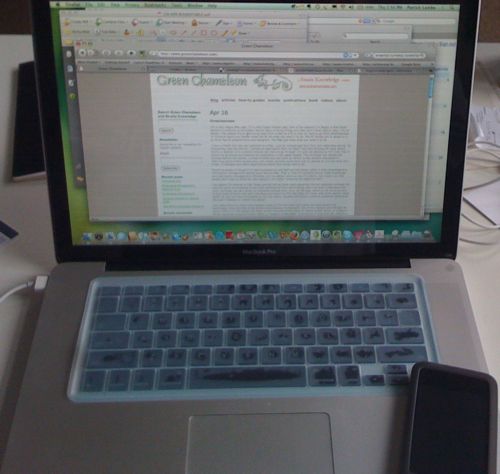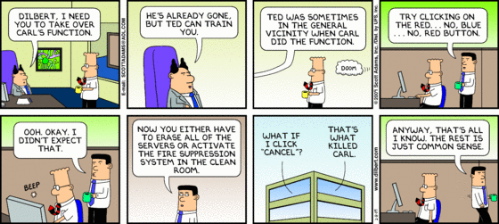Apr 30
AWARE of Poor KM
There’s high drama going on in Singapore at the moment. A 25-year-old NGO, the Association of Women for Action and Research (AWARE), was recently taken over by a group of people with connections to a christian fundamentalist church. How did this happen? Orchestrated by a self-styled “feminist mentor”, this particular church had sent out emails asking its members to join the association a few months before AWARE’s AGM, so that they could vote like-minded people into the executive committee. As it turns out, 9 of the 12 seats went to newcomers to the Association. 6 out of the 9 newcomers attend the same church. None of the 6 had prior experience volunteering with AWARE. The president was one of the old guards, but she eventually quit after she was barred from attending an exco meeting. The new exco fired the heads of sub-committees and the centre manager soon after. They changed the lock so none of the old guards can access the premises. AWARE essentially is starting anew.
Apr 29
KM is a Bad Bet?
Stephen Bounds has a fascinating piece of calculation using Monte Carlo simulations on the likely benefits of KM interventions targetted at preventing knowledge failures. He concludes:
“In particular, the outcomes of my experimentation suggest that many across-the-board KM … untargeted interventions inevitably try to achieve smaller improvements across the board, typically in situations where there is a low probability of failures occurring. The Monte Carlo simulations demonstrate that for a substantial number of organisations, even successful attempts to reduce knowledge failure risk by, say, 10% may have a negligible effect on bottom-line savings over a sustained period of time.”
I’m not sure that something as context-dependent as KM can successfully be modelled using a method more suited to chaotic environments than humanly complex environments, especially when the unit of measure is reduced to a financial one. Human systems have intrinsic ambiguity in them, especially when you try to resolve things down to financial measures. For example, the work involved in addressing small knowledge failures might be legitimately identified by different parties either as an avoidable cost or as an investment in building the experience of a new member of staff, depending on the context or even the stance of the interpreter. So I’m reading this as more of an interesting exercise in raising questions and identifying issues for exploration, than in addressing the old, simplistic ROI debate.
And of course it does not address other reasons for doing KM apart from cost reduction/avoidance – eg if KM is simply the price for staying in the competitive game or insurance against major calamity.
Apr 28
Conducting a Knowledge Audit
Here’s another in our series of video tutorials to different practical knowledge management techniques. It’s taken from a workshop we conducted last week on knowledge audits and knowledge mapping. For ease of use it’s split into three short parts:
PART ONE: DIFFERENT TYPES OF KNOWLEDGE
Download the mp4 video file by right clicking here
Go to the show page on vimeo here
PART TWO: DIFFERENT STRATEGIES FOR DIFFERENT KNOWLEDGE TYPES
Download the mp4 video file by right clicking here
Go to the show page on vimeo here
PART THREE: CONDUCTING A KNOWLEDGE AUDIT AND BUILDING KNOWLEDGE MAPS
Download the mp4 video by right clicking here
Go to the show page on vimeo here
Apr 20
NHS KM Resource Library

Many of you will have used the NHS’ public KM resources site.
It gathers together a range of resources on KM applications in the public sector (not just the NHS) and it has a very applied, practical focus.
Apparently its status is now under review, the site is no longer being actively maintained, and there is a survey up to seek feedback on how people have used it. If you have used this site and have got value from it, please take the feedback survey. We need more agencies that make their KM efforts visible, it would be a pity to lose this one.
Thanks to David Gurteen for bringing my attention to this.
Apr 16
Consciousness

I’m a very happy Mac user. I’m a very happy iPhone user. One of the reasons I’m happy is that Apple designs its products to anticipate natural ways of doing things and then builds those natural ways into its design. The reason it’s so hard to go back from a Mac to a PC is that it’s hard to go from effortlessness to trying to figure out how to make the PC do what you want it to do. The PC forces you to adapt to it, to think like its programmers and designers. The Mac just does what you want it to do.
I have a friend who has just switched to a Mac. I got an exasperated text from him yesterday saying “so frustrating, how the hell do I remove an application from my Mac?” He’s still thinking PC-style where there’s a several-click uninstall process you have to go through. It’s just not obvious to him (yet) that it should be as simple as dropping the application in the waste basket. The computer can handle the process behind the scenes, process is what they are good at. Which is why anyone interested in reforming government bureaucracy and citizen services could start just by issuing all civil servants with a Mac. It changes your basic assumptions about how things should be.
Apr 15
Knowledge Management, Bacteria Style
Some weeks back I wrote over at the Cognitive Edge guest blog that “single-celled organisms … are very much independent players”. This riveting TED talk by Bonnie Bassler about how bacteria communicate with each other and coordinate their actions for large scale (social) impact has forced a rethink on that.
In fact, lurking unspoken behind Bonnie’s talk is the implication that far from being the apex of creation, humankind (among other multi-celled organisms) are merely the product of a billion year experiment by bacteria to maximise their access to nutrients and growth – an intriguing twist on an old Douglas Adams joke about mice and men. We are bacteria’s infrastructure, painfully evolved by them, just as cities and trade routes form our infrastructure. Even human intentionality can be read as a bacterial strategy. Take the the obvious counter claim that humans have revolted Frankenstein-like against their bacterial creators with the invention of antibiotics. On the bacterial plane, this can simply be read as just one strategy for bacteria who like their infrastructure alive to win out over the bacteria that like it dead. If you have billions of years to play with, it makes sense to develop infrastructure smart enough to protect itself against your competitors.
What Bonnie does suggest is that bacteria set the basic rules for how more complex organisms communicate and coordinate internally. The question now bugging me (pun intentional) is whether these basic rules also apply to social organisms – ie communities and organisations. This chimes with something Pierpaolo Andriani wrote over a year ago, also on the Cognitive Edge guest blog: “as we can not rule out that both technological and biological evolution follow common dynamical patterns, we can at least risk and apply learning from bio evolution to tech evolution and see what we can learn from it.”
Perhaps bacteria can teach us more about knowledge management than we would expect.
Mar 18
Knowledge Discontinuity
Do you have a story to share about knowledge discontinuity? Visit our research project site at http://usingexpertise.blogspot.com.

Original cartoon here.
Mar 17
Intranet Innovation Awards 2009
It’s that time of year again!
“The Intranet Innovation Awards are global awards that celebrate new ideas and innovative approaches to the design and delivery of intranets. The goal is to find these ideas (whether large or small), and to share them with the wider community.”
These awards, now in their third year, are shaping up as a great showcase of intranet innovations and ideas both big and small. We’re proud to be a supporter.
Mar 17
The Black Knowledge Economy
The term the “black economy” refers to those parts of the economy which are underground and out of legislative and supervisory sight. It covers a raft of activities from the sinister to the mild, from extortion, drugs, illegal weapons trading and human trafficking, to money laundering, tax evasion and moonlighting. The bigger the black economy is, the less transparent the real economy is, and the harder it is to legislate for or manage (as in purposefully influence) in any significant way. In fact, the harder it is to do legitimate business too, because the lack of price transparency makes it difficult to plan for costs and profits. That’s quite apart from being able to collect enough tax to govern properly.
It strikes me that if we consider the flows of information and knowledge within organisations, and looked at it like an economy, then we often have very large, opaque, “black” knowledge economies, where most of the transactions are underground and out of sight, much of it moving through email. And just as with real black economies, the greater the attempts to govern and rein in these activities, the more they evade capture. I’m thinking of one former client in particular, where whenever there is a push towards using the formal knowledge management system, token visible efforts are made, but there is a surge in the improvisations around personal hard drives and email attachments.
So the question for many information and knowledge management initiatives is, how do (a) we design the environment and (b) improve our governance so that the transactions come out into the open, and so that our knowledge consumers start to get some visibility into the value that can be created from knowledge sharing. And can we learn from the strategies employed by economies that have successfully controlled their black markets?
Mar 16
Forgetting
KerrieAnne Christian has picked up an interesting story from the US Government Audit Office about cost overruns in the refurbishment of the warheads for Trident missiles. It was a US$69 million cost overrun, to be precise, in part because the critical knowledge to make a key component had been lost – poor recordkeeping in the 1980s and departure of the original people who had worked on it. If only we could count the cost of forgetfulness more often. Now, where did I put those nuclear missiles again?
